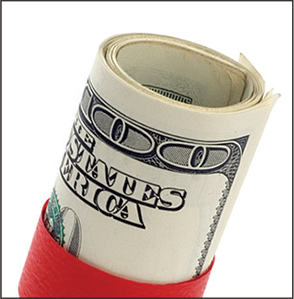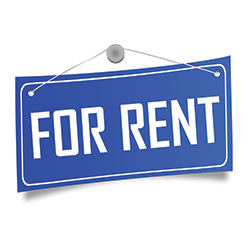|
exhibiting 101
 The ABCs of EACs
Hiring an EAC can make setting up a booth on the show floor a lot easier, but there's some red tape to navigate before reaping the rewards. By Betsy Earle
An EAC is an "exhibitor appointed contractor" authorized to handle a variety of services within the convention center on an exhibitor's behalf. Although the show hires a general services contractor (GSC), exhibitors can bring in their own. There are stipulations that dictate how to get an EAC set up and what the EAC can and cannot do, however, so if you choose to work with one, it's important to know the basics.
➤ What's the difference between the EAC and the GSC? EACs and the GSC offer similar services. The key is knowing which of the GSC services are preferred and which are exclusive because you can bring in EACs for preferred services but not exclusive ones. For example, installation and dismantle labor can be ordered through the GSC, but you can also bring in an EAC for this task. The most common type of EAC is an I&D vendor, but other types include audio visual partners, furniture rental partners, or even floral rental partners. Some exclusive GSC services include plumbing, rigging, electrical, and food and beverage, and you cannot hire an EAC for these areas. ➤ Why would I hire an EAC in the first place? There are several benefits to working with an EAC, but one of them is that you likely will have a more "boutique" experience. You can choose the people who support you by putting in a request with your partner EAC, which draws from a vetted labor pool. You can call people you know, from account managers to city managers. Plus, working with the account manager at an EAC means you'll have one point of contact throughout the year, and they'll get to know your account better over time. You'll also get to know different workers in different cities. Let's say you have a show in Anaheim, you hire labor through the GSC, and Bob installed your booth. If you worked with Bob at last year's show, you are not likely to be able to request Bob again this year. But if Jim at an EAC put your booth together, you have a better chance of requesting he work in your booth again. You'll also have more people who know you to call in case of an emergency, and you'll have more dedicated services in the pre-planning portion of your program. With my company's preferred labor EAC, I know that I can forward them my show services, install diagrams, electrical diagrams, and any other documents I want to get to my crew before the show, and my main point of contact will get those documents printed and planned out for me. Working closely in pre-planning creates consistency and connection. ➤ How do I find an EAC? It's important to find an EAC that is both reputable and has experience in the trade show industry. Similar to what I always say about hiring a shipping company that's familiar with marshalling yards, you'll want to work with an EAC that's well versed in what can and cannot be done within the confines of a convention center. Typically, your exhibit house partner will be able to refer you to companies that offer services such as I&D, audiovisual, and flooring. An additional resource to consider is the Exhibitor Appointed Contractor Association (EACA) directory. The EACA is a nonprofit organization formed with a mission to raise the level of service to exhibitors on the show floor. Keep in mind that, although many show labor providers and EACs are members of this organization, expand your searching beyond the EACA directory because many reputable providers are not members.➤ How and when do I get my EAC set up to be able to work? EACs should have a true and valid order for service from an exhibitor. This is not a form that you should have your exhibit house complete on your behalf, and if it needs to be signed, sign it yourself. The exhibitor services manual will indicate how to notify the show organizer, the show manager, or a third party that you plan to bring an EAC into the show, and it is essential that you register your EAC before the deadline. Both the exhibitor and the EAC need to submit their own paperwork to permit the EAC to work at the event. The deadline is typically 30 days before the show opens, but sometimes it's further out, so be sure to mark it on your calendar. These forms can be difficult to locate, but they're usually within the show's exhibitor hub or on the GSC website. And sometimes, you'll need to complete one in both places. For example, each time an EAC submits an order on the website for Freeman or GES (both GSCs), it needs to identify that they are a third-party. Freeman's EAC submission form is set up as part of their shopping cart process. GES, on the other hand, added a step that triggers an email to the exhibitor when a third-party is ordering on their behalf.  Some venues and show managers charge fees that can discourage EACs from working at their events. These fees can range from a hundred dollars to a few hundred dollars, and they are paid either to the venue or to the show organizer. Some venues and show managers charge fees that can discourage EACs from working at their events. These fees can range from a hundred dollars to a few hundred dollars, and they are paid either to the venue or to the show organizer.
➤ How does the EAC get access to the show floor? EACs do not need badges to get onto the show floor, but they will only be given exhibit hall access during move-in and move-out dates and times. EACs are typically required to pick up their wristbands at check-in desks or with security guards to gain access to the exhibit hall. If an EAC needs to be on the floor during show hours, they must have a regular exhibitor badge, and exceptions to that rule vary from show to show. ➤ Does the EAC need to provide a certificate of insurance before the show? The short answer is yes. The certificate of insurance is proof of coverage for the duration of the show. Typical requirements state that both the exhibitor and the EAC have commercial general liability policies with limits of at least $1 million per occurrence and a $2 million aggregate. Exhibitors have seen these requirements and submitted paperwork, but the EAC must also complete the same documents on the back end. It doesn't hurt to reach out to them and make sure that they've taken the proper steps to prohibit any issues on site. An insurance certificate is usually free of charge if it's issued by the insurance carrier with which you hold a general liability policy. ➤ How do I know that my EAC is vetted to legally work in the venue? Not everyone can be registered as an EAC. There is substantial overlap between union labor and EACs, so make sure that if the role you're trying to fill falls into a union jurisdiction that the EAC you hire meets all legal requirements. I can't hire Joe's Construction Crew if they are residential carpenters that are not registered as an EAC with the venue and don't have the appropriate mix of union workers on their staff. This remains true in right-to-work states. Cities and venues will require companies to be registered, even if there is a different proportion of union to nonunion employees permitted. There are a ton of vetted I&D companies in the trade show and exhibits industry that carry union cards and understand how the rules work – and these are the companies you'll want to consider when scheduling your labor.  You'll want to work with an EAC that's reputable and well versed in what can and cannot be done within the confines of a convention center. You'll want to work with an EAC that's reputable and well versed in what can and cannot be done within the confines of a convention center.
➤ Are there fees associated with hiring an EAC? When deciding if you want to bring in an EAC, do both a cost and a productivity comparison. I prefer to bring in an EAC for my I&D labor because I can work with them in advance and request specific crew members who are familiar with my booth. This means they can work faster, which saves money. That said, there are shows where it might be beneficial to work with the show labor. For example, on a smaller booth I might not need as many hours of help. A typical installation and dismantle EAC will likely work on a four-hour minimum whereas the GSC labor team might have a one-hour or two-hour minimum. Consider the factors on a case-by-case basis to determine whether one might work better for you. Some venues and show managers charge fees that discourage EACs from working at their events. These fees can range from a hundred dollars to a few hundred, paid either to the venue or the show organizer. EAC fees are minimal compared to the grand scope of your trade show program, so while these fees don't necessarily represent a deal breaker, it is important for exhibitors to budget this into their program so they're not surprised by line items that they didn't expect. McCormick Place requires an annual EAC payment and also requires contractors to register for their B.E.E.P. Program, which helps secure the facility and support the facility operation program. The Las Vegas Convention and Visitor's Association also requires EACs to register to work in the venues within the Strip. Most EAC charges, however, are driven by show management and are designed to offset the costs that they pay the GSC. EAC fees that come from show management can be a flat rate, can be charged per exhibit, or may be calculated by the square foot. Some people who use EACs take issue with the associated fees and say that it seems almost like a penalty to exhibitors that bring in their own crew. Working with EACs is a completely normal and common practice in convention centers and venues across the country. When making your choice, you'll need to decide the impact of the EAC on your exhibit program in terms of what they're helping you with and how you want to budget with them for your show. An EAC might be the right solution in some areas of your program, but in other cases, you might want to just order from the show's preferred suppliers. By understanding the EAC's role, having an idea of the rules and regulations surrounding them, and understanding how to properly plan for one in your program budget, you'll be setting yourself up to successfully make an educated decision.E  Betsy Earle, CTSM
Betsy Earle, CTSMmanaging director and founder of Event Driven Solutions LLC. Earle obtained her MBA at the University of Miami and earned her Diamond-level CTSM designation in 2018. Exhibiting101@exhibitorgroup.com
|
|
|
||||||||||||||||||||||||||||
|
|
||||||||||||||||||||||||||||
|
TOPICS Measurement & Budgeting Planning & Execution Marketing & Promotion Events & Venues Personal & Career Exhibits & Experiences International Exhibiting Resources for Rookies Research & Resources |
MAGAZINE Subscribe Today! Renew Subscription Update Address Digital Downloads Newsletters Advertise |
FIND IT Exhibit & Display Producers Products & Services All Companies Get Listed |
EXHIBITORLIVE Sessions Certification Exhibit Hall Exhibit at the Show Registration |
ETRAK Sessions Certification F.A.Q. Registration |
EDUCATION WEEK Overview Sessions Hotel Registration |
CERTIFICATION The Program Steps to Certification Faculty and Staff Enroll in CTSM Submit Quiz Answers My CTSM |
AWARDS Sizzle Awards Exhibit Design Awards Portable/Modular Awards Corporate Event Awards Centers of Excellence |
NEWS Associations/Press Awards Company News International New Products People Shows & Events Venues & Destinations EXHIBITOR News |
||||||||||||||||||||
|
||||||||||||||||||||||||||||






